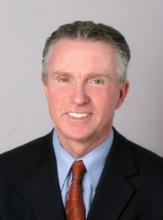"You’re joking, right?" Even as I reflexively uttered these few words, I knew that my friend was not kidding around. Yes, it was true; Jim Steele (not his real name), whom I had trained with many years ago, had killed himself. "Gunshot wound to the head" was offered next. I realize now that my friend, another physician, was using clinical jargon to protect himself from the horror and the deeply personal nature of the act of self-destruction. "You’re joking, right?" conveys my shock and disbelief. But why are we stunned like this in the face of suicide? Would I have used these words if Jim had died of a coronary or cancer?
Physicians have long been known to have significant rates of suicide. The most common underlying psychiatric illnesses are mood disorders, substance use disorders, dual diagnoses, and personality traits and disorders (borderline, narcissistic, antisocial). Psychiatry is one of the vulnerable branches of medicine. For some observers, this is a paradox – wouldn’t specialists in diseases of the mind be able to recognize illness in themselves and seek appropriate treatment? For others, the cynics who have always deemed psychiatrists somewhat unstable and "less than," suicide is no surprise at all. If they weren’t already a bit off before specializing, then looking after mentally ill patients day after day could drive them to suicide.
What do we know about physician suicide, and in particular, psychiatrist suicide?
It is believed that 85%-90% of people who kill themselves have been living with a psychiatric illness, whether diagnosed or treated or not. Doctors are no exception. As a specialist in physician health, most of the doctor patients I have lost to suicide have been in this cohort. They are individuals who have died of their diseases, often after a long courageous battle. They have been poorly responsive to medications and various psychotherapies; they have had repeated hospitalizations, including courses of ECT, and their losses have been phenomenal – loss of career trajectory, loss of income, loss of marital and family stability, and loss of social supports.
Another group of physicians who take their own lives are doctors living with chronic, persistent, and progressive medically debilitating disorders. The loss of robust health and functioning, a medical vision of what lies ahead, and a need for autonomy and control over one’s destiny may drive the decision to die by suicide.
Given their medical training and knowledge, doctors know how to kill themselves. Access to lethal drugs (barbiturates, opiates, tricyclic antidepressants, insulin, potassium chloride) contributes to suicide risk. When exploring suicidality in my physician patients, I have been struck by the elaborate research and planning that underlie the suicide plans of physicians. It is embodied in statements like: "I want to do it right, absolutely foolproof; I’ve looked after too many botched suicide attempts in my work as a physician."
Stigma attached to psychiatric illness is still with us in the house of medicine. Stigma drives denial of symptoms, increases refractoriness, contributes to self-medicating, delays seeking help, and contributes to poor treatment adherence. In fact, many psychiatrists live with internalized stigma when they fall ill. They are ashamed to seek help and sometimes feel fraudulent, fearing that their talent and credibility as a competent physician are sullied by becoming a patient. They are tempted to prescribe for themselves and eschew reaching out to other psychiatrists for treatment. This is dangerous and puts psychiatrists at risk for suicide.
Psychiatrists probably have a higher incidence of mood disorders than those in other branches of medicine. This may be due to self-selection and choosing a field that is accepting of mental illness in its practitioners. It is not by accident that a medical student is attracted to psychiatry in part because of a bout of mental illness (eating disorder, anxiety, or mood disorder) and successful treatment during high school or college. Studies of addictive diseases in doctors have also found psychiatrists to be at risk. Mood disorders and chemical dependency – alone or in combination – contribute to suicide in psychiatrists.
There is much that we can do to avert these tragedies. Awareness is central. All of us need to fight stigma – both in our words and deeds. We need to take care of ourselves and embrace the notion of wellness. We need to be our brother’s and sister’s keeper, to reach out to colleagues we think are struggling and help them get appropriate, state-of-the art treatment. And should we lose colleagues to suicide, let’s remember them for how they lived, not just how they died. This is respectful and compassionate. We will honor their memory and their family members left behind.

